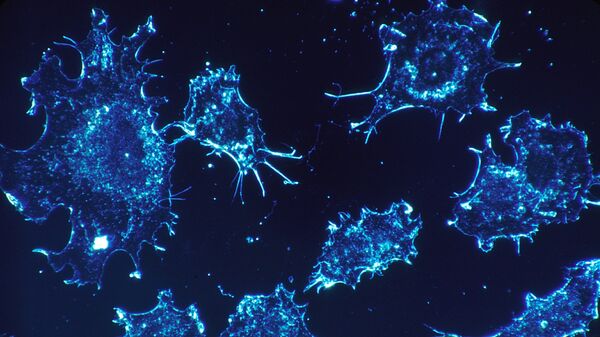Russian nuclear specialists have begun work to create a modern factory for the production of radiopharmaceutical drugs for targeted cancer treatment, JSC Central Design and Technological Institute (JSC CDTI), the Rosatom TVEL subsidiary tasked with designing the plant, has announced in a press statement.
The plant is expected to be built on the territory of Rosatom’s Karpov Scientific Research Institute of Physics and Chemistry in Obninsk, about 80 km south of Moscow, and is expected to begin production by 2024.
The radiopharmaceuticals produced at the factory will need to meet international guidelines in the production of medicines under GMP (Good Manufacturing Practice) standards. Once completed, the plant will become the first of its kind in Russia producing targeted radiopharmaceutical treatments using isotopes including lutetium-177, actinium-225, and radium-223.
Rusatom Healthcare, the Rosatom subsidiary specializing in integration solutions in the fields of radiation technologies in medicine and industry, has tasked JSC CDTI with pre-project documentation, including an investment feasibility study and design and survey work.
“These drugs are aimed at providing an effective, and sometimes the only option in the diagnosis and treatment of cancer,” Rusatom Healthcare director Alexander Shibanov was quoted as saying in the press release.
According to Shibanov, “whereas the majority of traditional treatment methods can be compared to shooting a cannon at sparrows, where the whole body is exposed to powerful toxic effects, targeted therapy using radiopharmaceuticals is comparable to a ‘sniper’s’ approach – targeted action on the affected cells.”
“The drug molecule ‘sees’ certain disease markers and delivers the drug’s active pharmaceutical ingredient to affected cells without affecting healthy ones,” he explained.
Russian scientists have long been at the forefront of research in the fields of modern nuclear medicine, building and expanding on the work begun by Hungarian radiochemist George de Hevesy, French physicists Eugene Bloch and Henri-Alexandre Danlos, American scientists Saul Hertz and Ernest Lawrence, and many others. In 1946, under the leadership of Soviet biophysicist Gleb Frank, the USSR created its first radiopharmaceutical research institute – now known as the Burnasyan Federal Medical Biophysical Center. In 1997, the center was recognized as a leading global institute in the field of radiation medicine, and assigned the status of a World Health Organization collaborating center in this field. From those humble beginnings, a number of other centers, including the Karpov Institute, have engaged in studies in this area.




